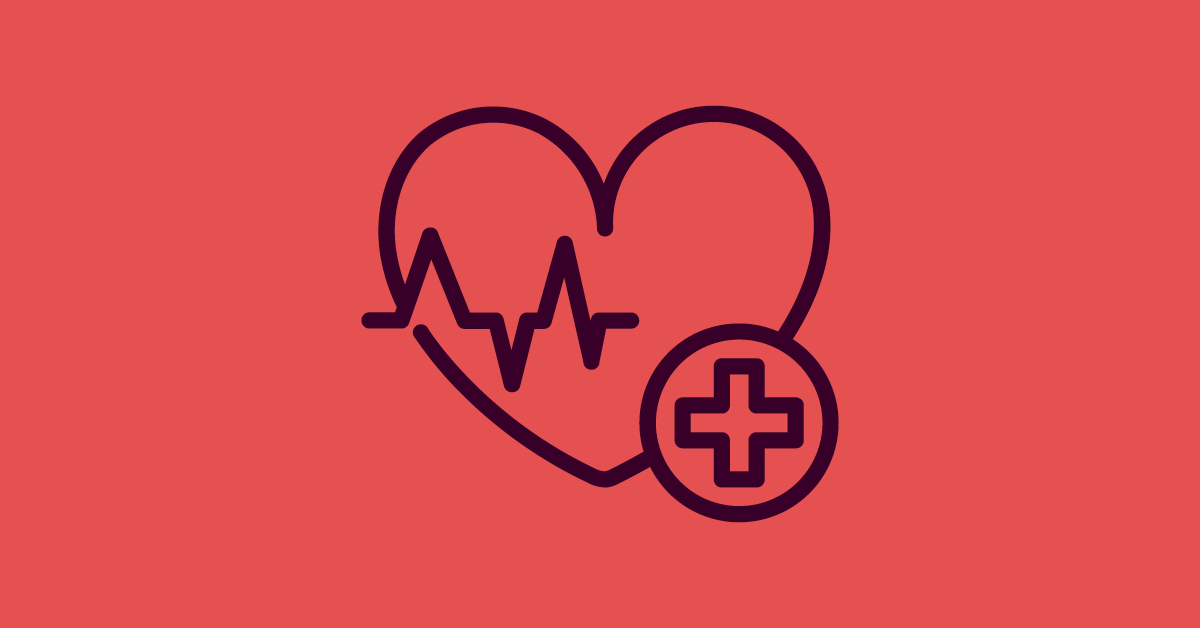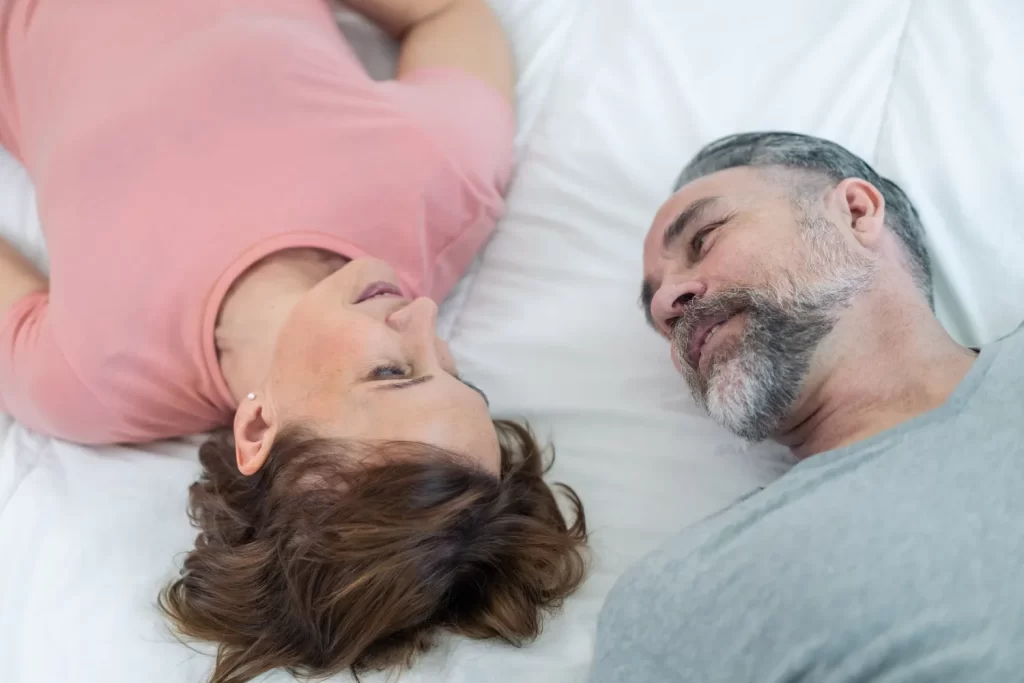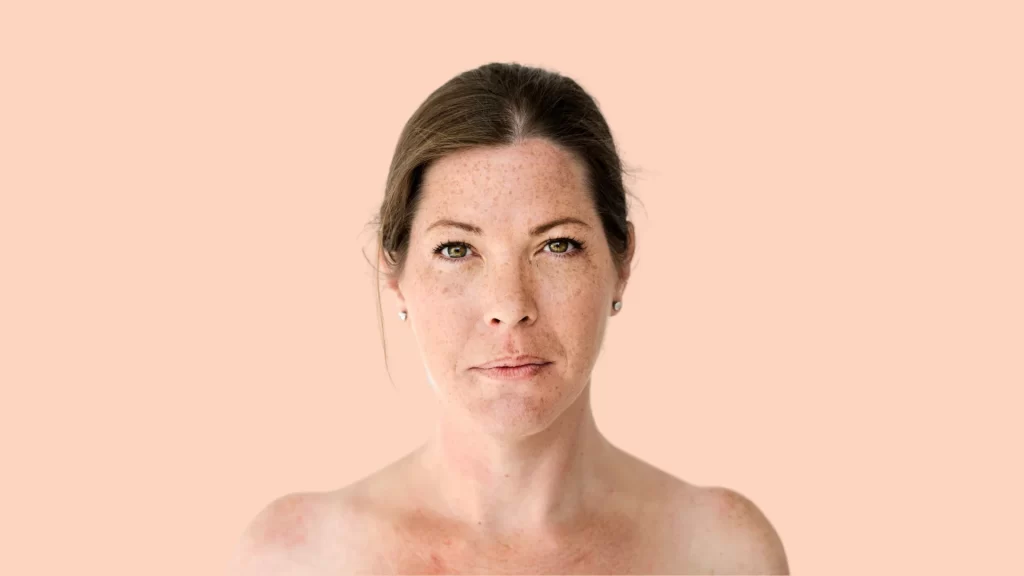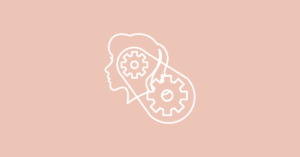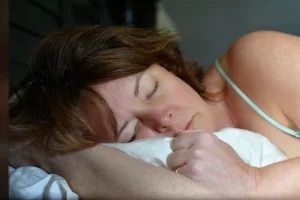Snapshot
Fluctuating hormones = sleep disturbance
Sleep disturbances are a common challenge during menopause, driven by fluctuating hormones like estrogen and progesterone. To improve sleep quality, establish a consistent bedtime routine, create a sleep-friendly environment, and practice good sleep hygiene. Techniques like Cognitive Behavioral Therapy for Insomnia (CBT-I) are highly effective and should be considered before medication. Additionally, products like cooling bedding and white noise machines can support better sleep. If sleep issues persist, seeking professional help is crucial, as chronic sleep problems can lead to more serious health issues.
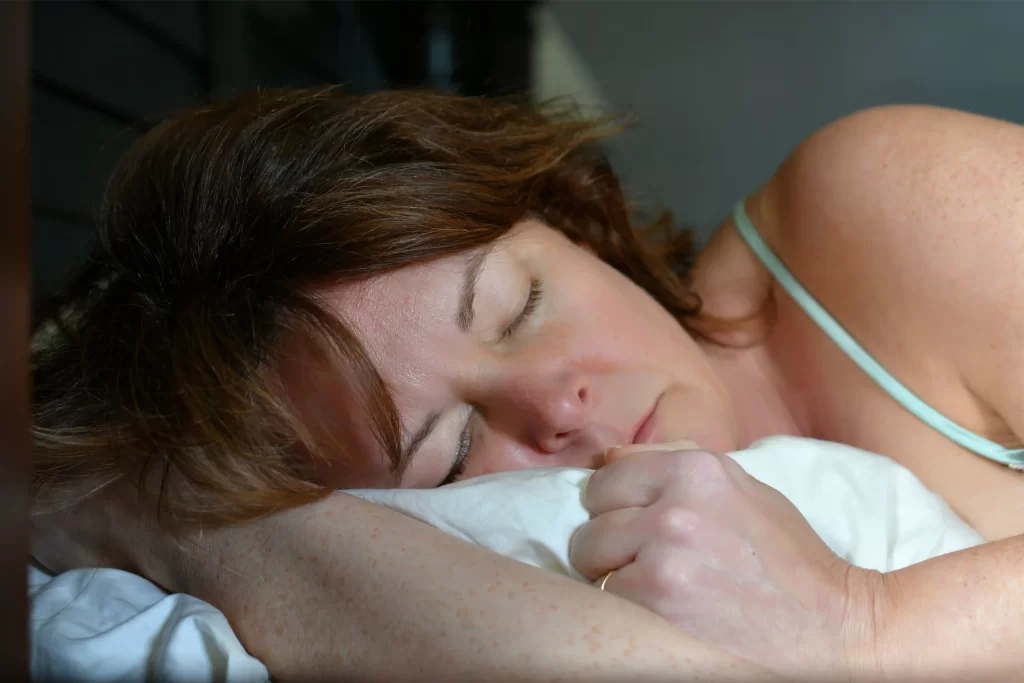
Why menopause messes with sleep
Sleep disturbances during menopause are more common than you might think. As estrogen and progesterone levels fluctuate, so too does our ability to sleep soundly. These hormonal changes can lead to a range of sleep issues, including insomnia, night sweats, and sleep apnea. But why does this happen?
Estrogen plays a key role in regulating the body’s temperature, sleep cycle, and mood. When estrogen levels drop, the body’s internal thermostat can go haywire, causing night sweats and hot flashes that disrupt sleep. Progesterone, which has a calming effect on the brain, also decreases, making it harder to fall and stay asleep. Additionally, changes in these hormones can contribute to mood swings and anxiety, further complicating our ability to rest.
Research tells us...
Scientific research supports many of these approaches to improving sleep during menopause. For example, Cognitive Behavioral Therapy for Insomnia (CBT-I) is highly recommended by sleep experts as a first-line treatment before considering medication. A study published in the Journal of Clinical Sleep Medicine found that CBT-I significantly improves sleep quality in menopausal women. Additionally, Menopausal Hormone Therapy (MHT) has been shown to alleviate sleep disturbances for some women, although it’s important to weigh the benefits against potential risks.
Sleep changes through the stages of menopause
Premenopause: Sleep disturbances may begin as early as your late 30s or early 40s, as hormone levels start to fluctuate. This is a good time to establish healthy sleep habits and routines.
Perimenopause: This stage often sees an increase in sleep disruptions due to more significant hormonal changes. Night sweats, insomnia, and anxiety may become more pronounced.
Postmenopause: While some women find their sleep improves postmenopause, others may continue to struggle with sleep issues. Continued focus on good sleep hygiene and relaxation techniques is key.
Starting early by adopting healthy sleep habits, such as maintaining a consistent sleep schedule, limiting caffeine, and practicing relaxation techniques, can help mitigate the severity of sleep issues later in life.
FURTHER READING
Steps to take for better sleep
The good news is that there are several strategies we can implement to improve on sleep during menopause:
- Establish a consistent sleep schedule: Going to bed and waking up at the same time every day helps regulate your body’s internal clock.
- Create a sleep-friendly environment: Keep your bedroom cool, dark, and quiet. Invest in comfortable bedding that keeps you cool, and consider using blackout curtains and a white noise machine.
- Practice good sleep hygiene: Limit alcohol consumption and avoid vigorous exercise close to bedtime. Reducing liquid intake before bed and limiting caffeine 8-12 hours before sleep can also make a big difference.
- Manage screen time: Reduce screen brightness in the evening, consider using blue light-blocking glasses, and avoid screens at least 30 minutes before bed.
- Try relaxation techniques: Meditation, light stretching, and reading a book can help relax your mind and body before bed.
- Dietary considerations: Avoid heavy meals close to bedtime. Instead, opt for a light snack that combines complex carbs and protein about an hour before bed.
When to get professional help
If sleep issues persist for three or more nights a week over several weeks, it’s time to seek professional help. A healthcare provider can evaluate your symptoms and recommend appropriate treatments, such as CBT-I, MHT, or other interventions. Remember, you don’t have to navigate sleep issues alone—help is available.
Anything else?
Here are a few more tips to help manage sleep during menopause:
Melatonin
This hormone can be helpful for some women, particularly those dealing with jet lag or shift work. However, it should be used cautiously and under the guidance of a healthcare provider.
Sleep apnea
If you experience loud snoring, pauses in breathing during sleep, or excessive daytime sleepiness, it’s important to get evaluated for sleep apnea—a condition that becomes more common during menopause.
Tool kit for better sleep during menopause
Here are some products that may help improve on sleep quality during menopause:
- Cooling bedding: Invest in breathable, moisture-wicking sheets and pillows.
- White noise machine: To block out disruptive noises that may wake you up during the night.
- Blue light blocking glasses: These can be helpful if you must use screens in the evening.
- Relaxation apps: Guided meditation or relaxation apps can be a great way to wind down before bed.

